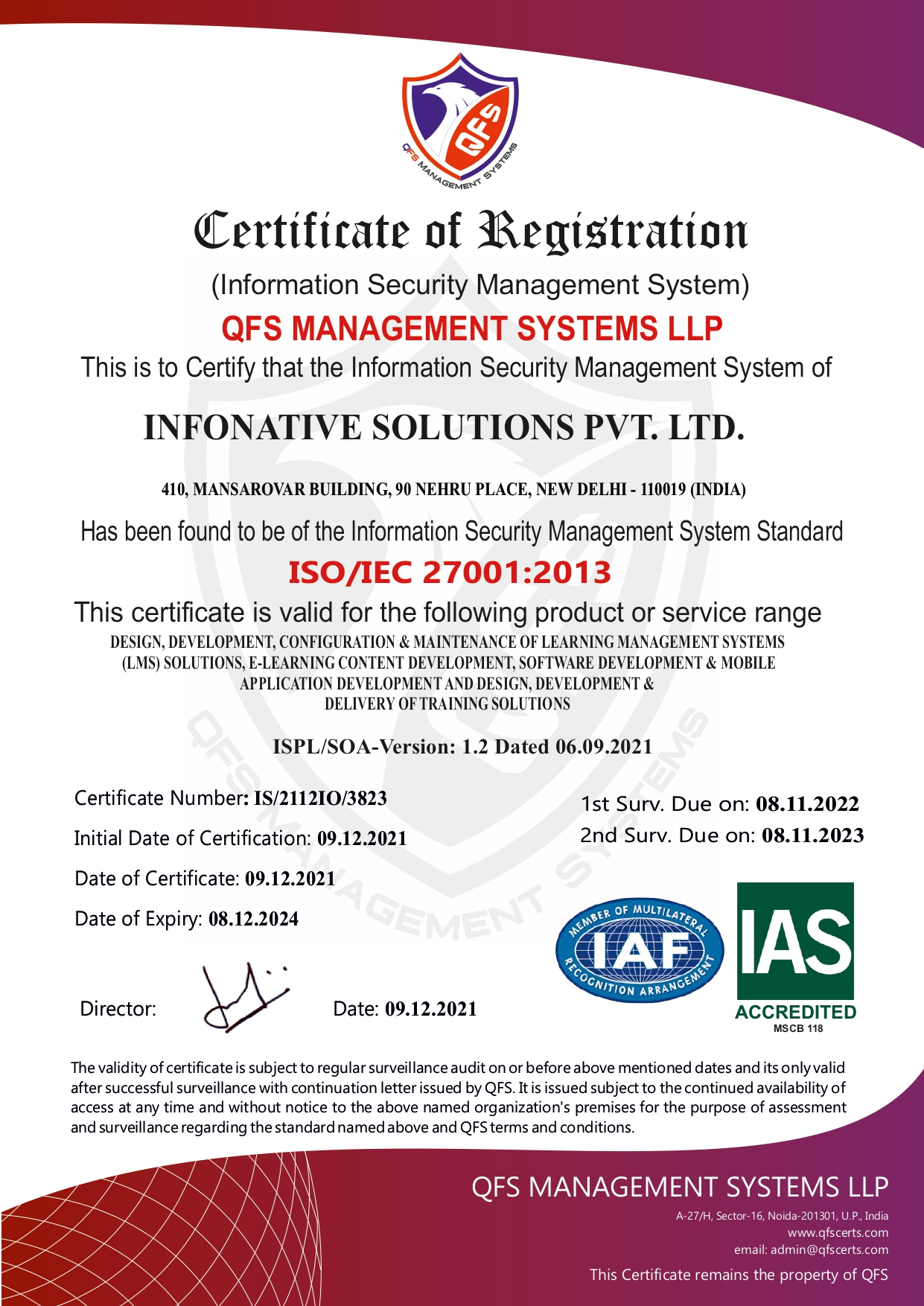ISO 27001 is an internationally recognized standard for Information Security Management Systems (ISMS), providing guidelines and best practices for managing information security risks within an organization. Here are several points highlighting the relevance and importance of ISO 27001 certification:
- Data Protection: ISO 27001 emphasizes the protection of sensitive information and data assets within an organization. It helps establish controls and safeguards to prevent unauthorized access, disclosure, modification, or destruction of information.
- Legal Compliance: The standard assists organizations in complying with relevant data protection laws, regulations, and contractual requirements related to information security. This includes requirements such as GDPR, HIPAA, PCI DSS, and others depending on the industry and jurisdiction.
- Risk Management: ISO 27001 promotes a systematic approach to identifying, assessing, and managing information security risks. It helps organizations implement risk mitigation measures, contingency plans, and incident response procedures to protect against cybersecurity threats and vulnerabilities.
- Business Continuity: Implementing ISO 27001 helps organizations establish business continuity and disaster recovery plans for information security incidents. It ensures continuity of critical operations, data recovery, and minimal disruption in case of security breaches or disasters.
- Customer Trust: ISO 27001 certification enhances customer trust and confidence by demonstrating that an organization has implemented robust information security measures and safeguards to protect sensitive data and customer information.
- Competitive Advantage: Achieving ISO 27001 certification can provide a competitive advantage in the marketplace, especially in industries where data security and privacy are critical considerations. It differentiates organizations as trustworthy and security-conscious partners or service providers.
- Improved Security Culture: ISO 27001 fosters a security-aware culture within an organization by promoting awareness training, security policies, procedures, and best practices among employees, contractors, and stakeholders.
- Vendor and Partner Relationships: Many organizations require their vendors, suppliers, and business partners to demonstrate ISO 27001 compliance as part of their vendor risk management processes. Certification to this standard can streamline partnerships and contractual agreements by providing assurance of information security practices.
- Global Recognition: ISO 27001 is recognized globally as a leading standard for information security management. Certification to ISO 27001 enhances an organization's reputation, credibility, and market acceptance by demonstrating adherence to international information security standards.
Overall, ISO 27001 certification is relevant for organizations seeking to strengthen information security, comply with regulations, protect sensitive data, build trust with customers, gain a competitive edge, and foster a culture of information security awareness and resilience.

